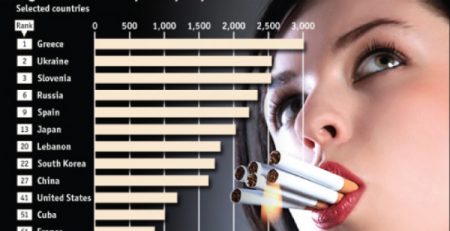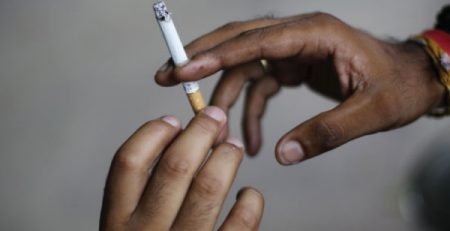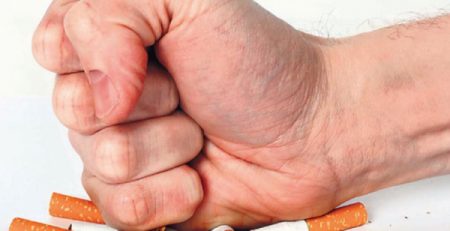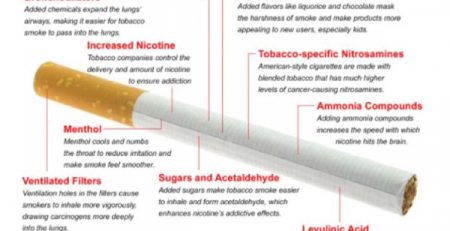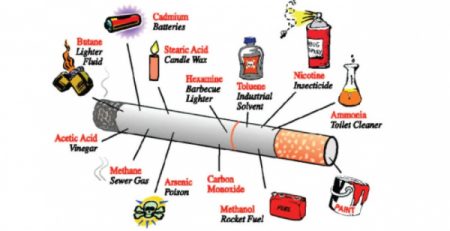The working team participating in the meeting
The working team participating in the meeting:
- Asst. Prof. Dr.Sunida Preechawong, Faculty of Nursing, Chulalongkorn Univerity (The head of the working team).
- Dr. Siripen Arunprapun, Bureau of Dental Health, Ministry of Public Health (Working member)
- Ajarn Raweewan Watcharangkul, the Office of the Permanent Secretary, Ministry of Education (Working member)
- Ajarn Anong Poltrakul, Non-Smoking Campaign Teacher Network (Working member)
- Ajarn Waraporn Hongdilokkul, Non-Smoking Campaign Teacher Network (Working member)
- Khun Haris Taweepatana, Tobacco Research Control and Knowledge Management Center (TRC) (Working member)
- Khun Saratnee Kaewkhum, Tobacco Research Control and Knowledge Management Center (TRC) (Working team secretary)
Other participants at the meeting:
- Dr. Siriwan Pitayarangsarit, Tobacco Research Control and Knowledge Management Center (TRC)
- Dr. Aronrag Cooper Meeyai, Tobacco Research Control and Knowledge Management Center (TRC)
- Khun Prapapun Iam-anan, Tobacco Research Control and Knowledge Management Center (TRC)
- Khun Songwut Trangwatthana, Tobacco Research Control and Knowledge Management Center (TRC)
- Khun Orathai Jaiboon, Tobacco Research Control and Knowledge Management Center (TRC)
Motion 1: Inform everyone of the purpose of the knowledge management project for driving tobacco control in schools by Khun Haris Taweepatana
The knowledge management purposes for driving tobacco control in schools are described below:
- To establish research groups throughout Thailand for knowledge exchange of tobacco control in schools. This knowledge exchange will be applied in driving tobacco control policy in schools
- To issue knowledge conclusions gained from research, theses and other sources relevant to tobacco control in schools
- To issue research questions on tobacco control in schools
- To set a research plan for driving tobacco control in schools
Working processes
- To establish an academic core group on tobacco control in schools
- To set a meeting of knowledge exchange, review current knowledge and set research questions with members and researchers in order to gain new knowledge and provide answers to policy questions
- To propose analysis results, research results and results from brain storming to forward policy processes suitable to situations occurring in Thailand
- To issue analysis results, situation reports and suggestions according to situations happening currently
The working schedule has been separated into 2 periods The First period (1 November 2009 31 August 2011)
- To exchange knowledge (several times) for issuing research questions, to develop a research frame work and to provide suggestions to members
- To present brain storming results to relevant parties
The Second period, 8 months (1 September 2011 30 April 2012)
- Analysis, synthesize and summarize knowledge obtained from research/theses and other relevant sources on smoke – free schools from 2006 2011
- Release information from research/theses content and other relevant sources which indicate promising research titles, researcher names, responsible people (research leaders, departments), year publication, publisher, research category, key words, suggestions, abstracts, etc.
- Release Mind Map for integration of research issues and research for further suggestions on research directions
- Arrange for 2 meetings for working teams
- Issue conclusion and release 3 reports
The project results
- Establishing the policy study group on tobacco control in schools
- Obtaining research questions and collaboration among different research groups for develop a research frame work
- Developing research directions covering tobacco control activities in schools
- Providing policy synthesis from research
The meeting resolution: Acknowledgement
Motion 2: To review knowledge obtained from tobacco control in schools by Ms. Sarattanee Klumkaew, TRC Academic staff. The detail of this review is described below: Previous research projects/theses: 1. There are 102 research projects / theses titles completed previously:
- 42 titles of research projects/theses on effective cigarette cessation relevant to behaviors
- 8 titles on factors relevant to smoking prevention
- 30 titles on factors relevant to cigarette smoking
- 14 titles on knowledge, attitude and smoking behaviors
- 6 titles on curriculum
- 2 titles on general topics
The results of this knowledge review are categorized below:
1) There were 42 research/theses titles conducted in the area of the effectiveness of cigarette cessation for behavior change.The variables used in these studies are: (1) Activity types: teenage camping / activity group / simulation situation / game and demonstration / group techniques such as group discussion or brainstorming, (2) Social encouragement from friends, teachers, parents, volunteers, (3) Providing individual or group suggestions, (4) Providing information/knowledge, (5) Skill practicing and how to refuse smoking, (6) Self-esteem and knowledge exchange, (7) Skills to release stress and (8) Intention to give up smoking.
2) There were 8 research/theses titles conducted in the area of smoking prevention. The variables used in these studies are (1) Self-esteem, (2) Social encouragement, (3) Cigarette knowledge and smoking preventing behaviors such as how to release stress, how to refuse smoking, how to communicate, how to use spare time, and smoking attitude, (4) Individual factors such as genders, educational major, close relationship which one who smokes and smoking behavior.
3) There were 30 research/theses titles conducted in this area with many factors relevant to smoking. The variables used in these studies are (1) Psychological factors: Self control ability, intentions to quit, (2) Social and environmental factors: Close relationships, Invitations to smoke by friends or family members, (3) Family factors: Relationships, communication, guiding, modeling and providing information and knowledge, (4) Health confidence factors: Awareness of risk, awareness of violence, awareness of benefit and awareness of obstacles, (5) Mass media factors, (6) School relationship factors, (7) Personal factors: gender, age, education attendance, Years of smoking and success in study, and (8) Social influence factors.
4) There were 14 research/theses titles conducted in this area of knowledge, attitude and smoking behavior. The variables used in these studies are (1) Knowledge of disadvantage, danger, impact and smoking legislation, (2) Smoking attitude, female teenage smoking, legislation and action, (3) Smoking behavior, (4) Factors relevant to smoking behavior, (5) People and environment: Gender, success in study, income, living conditions, closed relationships (friends or family members), education attendance of social groups and parents, (6) School curriculum, and (7) Knowledge gained, (8) Attitude, and (9) Ways to access tobacco and smoking.
5) There were 30 research/theses titles conducted in the area of curriculum. The variables used in these studies are: (1) Applying knowledge, and (2) Comparing effectiveness.
2. There are 3 projects/theses titles on process The relationship between self-capability, self-esteem and smoking behavior in Muslim adolescents, Narathiwat province, Research leader: Patcharavadee Thongneung. The study of the effectiveness of smoking prevention programs with high school (or Mathayom) students, Ubon Ratchathani, Research leader: Assoc. Prof. Anun Chaikulwattana. Smoking cessation of senior high school (or Mathayom) students in Bangkok districts and suburbs, Research leader: Assoc. Prof. Panyarat Larpwongwattana.
3. There are 3 projects/theses titles under consideration The evaluation of the effectiveness of cigarette cessation among high school (or Mathayom) students in Bangkok, Research leaders: Assoc. Prof. Dr. Jintana Sarayuthphitak. The method of providing knowledge via electronic devices concerning cigarette dangers to adolescents, Research leader: Dr. Khammanat Mingsiritham. The effectiveness of the smoke – free school network, Research leader: Ajarn Anong Phuathakul.
Suggestions
Dr. Siripen Arunpraphun, academic staff of the Bureau of Dental Health, Ministry of Public Health suggested to add the tobacco consumption situation of students in schools under the Office of the Basic Education Commission, that is, research conducted by Assoc. Prof. Surinthorn KIumpakorn and Ajarn Raweewan Watcharangkul. This research has been completed.
Ajarn Anong Poltrakul, the President Deputy Director of the Non-Smoking Campaign Teacher Network suggested adding the research of Mr. Subanyo Jeenarong (The Executive role and tobacco control in Islamic schools in Southern Thailand) to the research that is being used in this process. The meeting resolution : Acknowledgement
Motion 3: To foster the need for using research results and to set research questions through collaborative working teams. Details for both are described below:
- Characteristics of school curriculum management
- Motivation of adolescents for giving up smoking
- Add a research project for vocational and private schools
- Cultural / religious factors influence smoking prevention and smoking cessation
- Collect types of activities that influence behavior such as Seniors guide Juniorsand the adolescent leaders program.
- Comparison of satisfaction, that is, parentsopinions between smoking free schools and general schools.
- The data collection for cigarette cessation research must be collected for at least 6 months up to 1 year The meeting resolution: Agreement
Motion 4: Matching university researchers with local researchers
Dr. Siriwan Pitayarangsarit, the director of Tobacco Research Control and Knowledge Management Center (TRC), explained that some research papers should be conducted in collaboration with local researchers and university professors. Those university professors are able to make research designs clearer than local researchers, and also those university professors can get funding support from TRC. For this reason, network university researchers should be invited to be co-researchers with local researchers.
- The effective evaluation of cigarette cessation programs for high school (or Mattayom) students in Bangkok (Research leader: Asst. Prof. Dr. Jintana Sarayutpitak)
- The effectiveness of the smoke – free school network (Research leader: Ajarn Anong Puatrakul)
The meeting resolution: Agreed to invite Asst. Prof. Dr. Jintana Saryutpitak to be a researcher for the research project, The effectiveness of the smoke-free school network project.
Motion 5: To set the next meeting date of the tobacco control in schools groop: The next meeting was set for 23 November 2011 from 13.30 16.30.
Motion 6: The issues to be discussed at the next meeting:
- Non-Smoking Campaign Teacher Network will exchange experiences of tobacco control activities in schools and review smoke-free school curriculum, the teachers manual for smoke – free school, the manual for media production, the manual for training lead students, lessons learned on smoke – free schools, the manual to help students to quit smoking, teaching media on toxic substances, Powerpoint and other network educational material previously presented .
- The budget indicators 2012 (draft) of the Office of the Permanent Secretary titled, The policy of smoke-free schools.
- The knowledge of tobacco control in schools and research questions that require answers.
Took Meeting Minutes: Ms. Rattanee Kumkaew
Proof read the Meeting Minutes: Dr. Siriwan Pitayarangsarit





